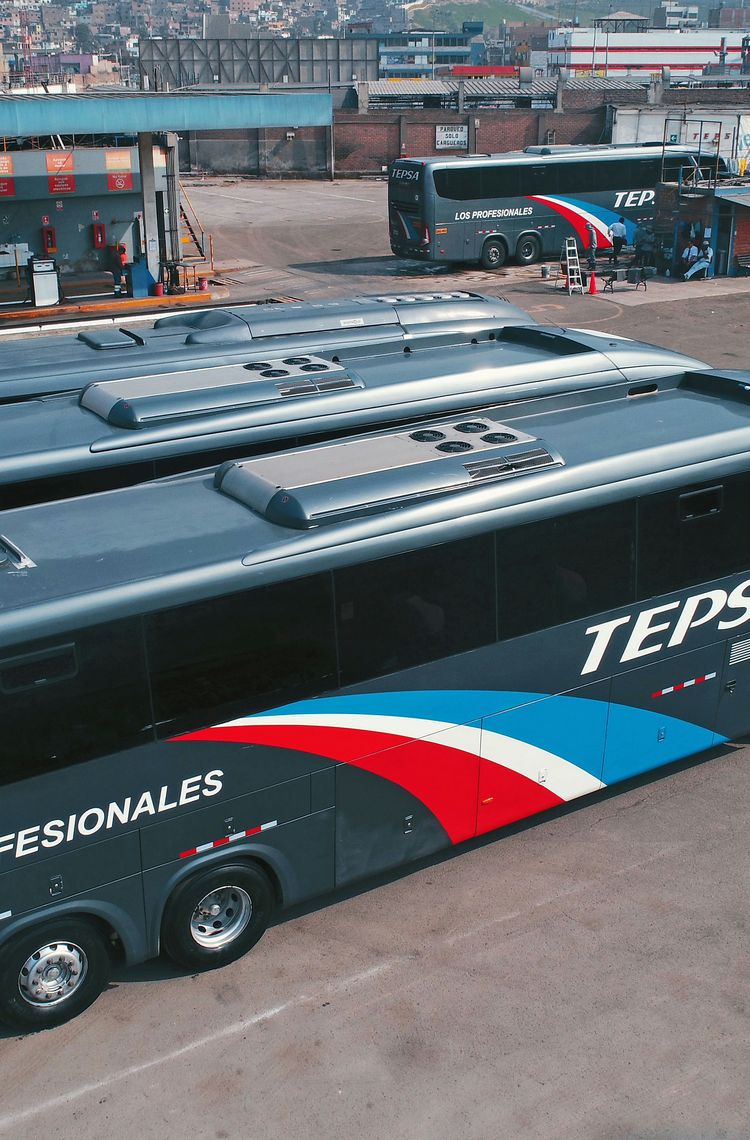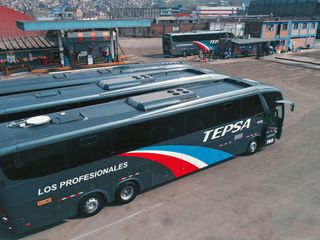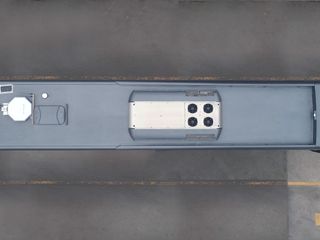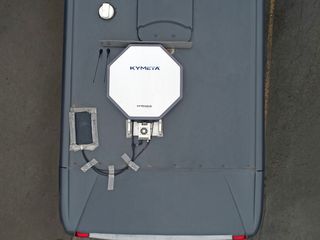#SmartBus
Lima, 28 January 2018 – Airbus and the World Bank have signed a Memorandum of Understanding to develop SmartBus, an innovative geospatial monitoring pilot project. Connected buses will gather and transmit information in real time about the state of the national road network, as well as enabling communication with areas isolated due to natural disasters. It will also study the use of new technologies to provide internet access in rural areas. The initiative, supported by the Ministry of Transport and Communications of Peru (MTC), will be developed on the Andean road route between the capital city Lima, on the Pacific Coast, and cities located at the edge of the jungle and low Amazonian jungle.
Scientific data will be gathered with unprecedented precision, making it possible to map one of the most rugged – and busiest – sections of the country’s transport network, crossing the highest paved road in the central Andes, Ticlio, at a height of 4,818 metres above sea level.
Alberto Rodríguez, Director of the World Bank for Bolivia, Chile, Ecuador and Peru, said: “It will only be possible to maintain growth in the coming decade if our countries invest in development of human resources and scientific capabilities. This pilot project aims to achieve this very goal, connecting people in an extremely difficult geographical region of Peru and helping them to identify problems and possible solutions relating to road safety, meteorology and transport logistics. By connecting people and their problems with research centres, universities and leading technological companies, the project is making a tangible contribution to development.”
Meanwhile, Christophe Roux, Head of Airbus Defence and Space in Latin America said: “The support shown by Peruvian institutions is also proof of Peru’s strong interest in technological innovation. Airbus is committed to supporting this development, especially taking into account that Digital Transformation is at the heart of our growth strategy.”
The first phase of the project will involve installation of satellite antennas and sensors on various commercial buses covering the 742 km coast-mountain-jungle route. The data gathered by these devices will be complemented by satellite images provided by the Peruvian Space Agency (CONIDA), one of the entities collaborating on the SmartBus project.
The second phase will involve the organisation of a hackathon in Lima from 15 to 17 February 2019, which will bring together engineers, developers and students from across Peru to work on the development of innovative digital services and solutions using the information gathered by these sensors.
The project will allow measurement of the impact of innovative technological solutions such as: access to new connectivity models; systematisation of data gathered via wireless applications for the monitoring of infrastructure and maintenance of road networks; and the updating of information relevant to business activities at a local level.
There is a major gap in Peru between urban and rural areas in terms of internet access. According to the Peruvian National Institute of Statistics (INEI), for every 100 households, 56.7 have internet access in the metropolitan area of Lima, 32.5 in other urban areas, and only 1.3 in rural areas (INEI, 2018). This pilot project will allow real-time access to meteorological and transport information, helping to mitigate the impact of recurring flooding on the local infrastructure and economy and promote adequate measures to prevent accidents and improve road safety.
SmartBus is one of the digital inclusion programmes currently being deployed by the World Bank with support from the Digital Development Partnership.
A number of companies are working together with Airbus, the MTC and the World Bank to implement the project. Kymeta and Aventior (both from the USA), Terabee (France) and the Peruvian companies TEPSA and Lequi Peru are all providing resources, together with the digital workshop Fab Lab Lima, the local branch of the Fab Foundation international network. The National University of Engineering is also participating in SmartBus through its Faculty of Civil Engineering and the National Telecommunications Research and Training Institute (INICTEL-UNI). Furthermore, the following stakeholders are taking part in this project through the Digital Development Partnership: Microsoft, GSMA, Finland, South Korea, Japan, UK and Denmark.
* * *
About Airbus
Airbus is a global leader in aeronautics, space and related services. In 2017 it generated revenues of € 59 billion restated for IFRS 15 and employed a workforce of around 129,000. Airbus offers the most comprehensive range of passenger airliners from 100 to more than 600 seats. Airbus is also a European leader providing tanker, combat, transport and mission aircraft, as well as one of the world’s leading space companies. In helicopters, Airbus provides the most efficient civil and military rotorcraft solutions worldwide.
About The World Bank
The World Bank Group is a unique global partnership: five institutions working for sustainable solutions that reduce poverty and build shared prosperity in developing countries.
Learn more about the work of the World Bank in Latin America and the Caribbean: www.bancomundial.org/alc
Visit us on Facebook: http://www.facebook.com/bancomundial
Be updated via Twitter: http://www.twitter.com/BancoMundialLAC
For our YouTube channel: http://www.youtube.com/BancoMundialLAC
Your media contacts
Contact us
Beatriz Lozano
AIRBUS | Defence and Space
Ambra Canale
External Communications - Airbus






